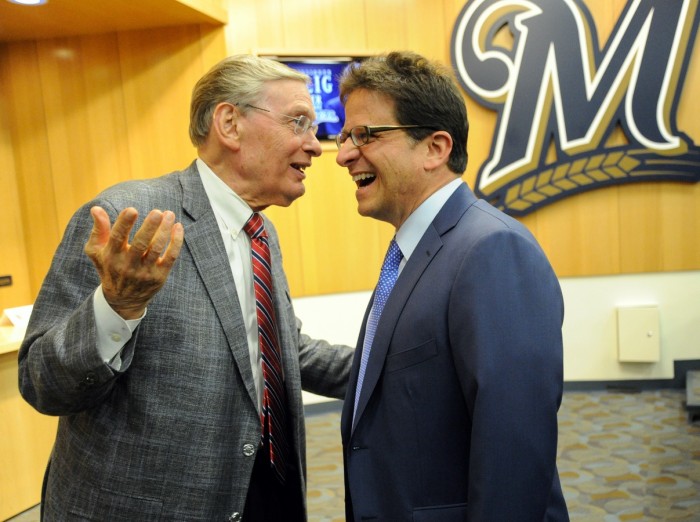The Brewers are undisputedly a small-market team. In fact, Milwaukee is the smallest American television market, and they currently suffer from one of the worst television contracts in all of baseball. The largest local contracts have obviously gone to the teams in bigger markets—the Yankees, the Dodgers, and the Phillies, for example—but the Brewers’ deal does not help them in the slightest. Information from the Milwaukee Journal-Sentinel indicates that the Brewers receive only $20 million per season, an increase that was lauded at the time but has quickly lost pace with the remainder of the league.
But the Brewers do not necessarily operate on a small-market scale. Their television revenue and market size suggest that they should be in the same payroll range as the Rays, Pirates, and Padres. Each of those three teams plays in smaller markets, with poor local television deals and carrying small payrolls. However, the Brewers—despite all the negatives mentioned above—have worked in an entirely different manner.
From 2008 (the organization’s first 90-win season since 1992) until 2014, Milwaukee ranked somewhere between thirteenth and eighteenth in annual payroll. For comparison, similarly-sized markets such as Kansas City (31st in American media-market size) and San Diego (28th) came nowhere close to such middle-of-the-pack consistency. The Royals have ranked as high as 18th just once since 2000 (the earliest for which Cot’s Contracts has records), and the Padres have been no higher than 23rd since 2006.
This higher payroll has not been accompanied by an increase in revenue. Their broadcast deal is one of baseball’s smallest, and since it is signed through 2020, there is no particular external reason they should be able to spend so much more on players than teams of a similar stature.
There is, though, a clear internal explanation. Owner Mark Attanasio has shown a remarkable willingness to spend money in situations that other owners will not, and this has been a huge boon to the Brewers. He shelled out the money to sign Ryan Braun to a massive extension early in the 2011 season that was, at the time, the second-largest contract ever given to an outfielder, he spent sizeable chunks of money on veteran free agents such as Jeff Suppan and Kyle Lohse, and he took on significant short-term payroll when trading for CC Sabathia and Zack Greinke.
Of course, not all of his acquisitions have worked out. Some, like Sabathia, were unquestioned successes. Others, like Matt Garza, have been less successful. However, it seems unfair to pin those failings on Attanasio despite the fact that he is undeniably involved and active. He has avoided making the same mistakes as other owners who are now seen as meddlers—for instance, he does not have a reputation for going over his general manager’s head to sign overpriced veterans. Instead, he has made his resources available to the front office to use as they see fit.
Attanasio himself has talked about his spending philosophy. And while it would be foolish to take every owner’s word as a gospel truth, Attanasio has supported his words with his actions, which leads me to believe that his quotes have some value.
His most interesting comments have been about his team’s lack of budget. In two different 2014 interviews—with Fox’s Ken Rosenthal and Fox Sports Wisconsin’s Andrew Gruman—Attanasio explained how his ownership style has transformed over time from having a very strict budget to allowing for more flexibility for unplanned adjustments necessary to make a playoff push. This has undoubtedly helped the Brewers. The acquisition of Zack Greinke prior to the 2011 season, for example, helped push the team to the NLCS that same year.
Attanasio’s comments do have a common thread—he repeatedly speaks about his team as an investment and as an investment opportunity. He is therefore unlikely to act the same way Mike Ilitch of Detroit does and pour unseemly amounts of money into his team. Instead, he will spend when he deems it wise. But, unlike many of the other small market owners, he has in fact shown a willingness to spend. The Brewers are in a significantly better place than many of their counterparts simply because of Attanasio. They cannot carry the $250 million payroll of the Dodgers and Yankees, but the Brewers’ owner has shown a clear willingness to reach the middle of the pack. This will serve Milwaukee well in the future, when their young talent reaches the big leagues and they need to sign additional players to augment their roster.

1 comment on “Mark Attanasio: The Key To It All”